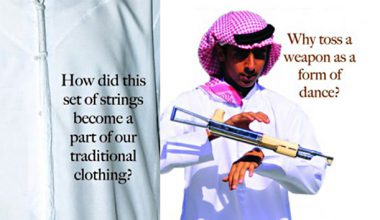Many classic books have been produced throughout literature’s history. To narrow down the list of literature’s best classics would require extensive research and many readers who already have their own top lists would be upset. To overcome upsetting literature’s bibliophiles, the five top classic books are based on a theme; human nature and its relevance to the society we live in today. The following are the five top books I chose that sum up the complexities of human nature and society.

David Copperfield by Charles Dickens
The book is a hindsight narrative account of the title character, David Copperfield’s life as a young boy. Copperfield describes the obstacles he overcame both at home and in his 19th century English society before becoming a successful novelist in his adult years. The story is a drama fiction written in 1850 by Charles Dickens, the master of literature’s classics.
The book is a blend of fiction with a loosely based autobiographical account of Dicken’s life as a child. David Copperfield has personal and self-discovery undertones that differ from other Dicken’s classics.
The story depicts the raw and unpolished human nature that existed in the 19th century that is still as relevant today as it was during the time the book was written in.
David Copperfield highlights the harsh truths of the individual suffering caused by familial problems as well as injustice and discrimination imposed through societal ranking. In order to understand the obstacles a person goes through in an oppressed and class-conscious society, one only needs to read David Copperfield. It exposes the underhand of brutality, discrimination and failure. The book is a classic in describing human nature because of its no-holds-barred account of the dark side of humans. A must read for social and behavioral understanding of human nature.
 Gulliver’s Travels by Jonathan Swift
Gulliver’s Travels by Jonathan Swift
A fantasy fiction set in the 18th century written in the first person to provide an account of the four voyages Gulliver, the title character, undertakes. Before the beginning of every journey a storm brews. On each of the journeys, Gulliver sets foot on foreign land, trying to make sense of the ways of the people he encounters. Gulliver is faced with four different situations that require him to think outside the box to communicate with the people he meets. Gulliver’s Travels can be seen as the first novel to introduce the notion of cultural acceptance in a high-brow elitist society during the time the book was written in through the depiction of failures and successes of social integration.
The book uses the theme of travel and discovery of different lands and people as a metaphor for cultural tolerance thereof, in the case of the main character in the book.
No matter what the other culture is, the way we react or engage with people allows us to clearly see the similarities and overlook the differences. The story’s journal-like account of the voyages provides an omniscient look into the pitfalls of intolerance and gives prescribed remedies to reaching a more leveled understanding. Humans have adapted to physical and environmental changes for centuries. However, adapting to behavioral and social changes is still a work-in-progress. This book is a must-read for those who like to travel to foreign places. A good pre-summer fresher book.
 Pride and Prejudice by Jane Austen
Pride and Prejudice by Jane Austen
Some might see the story as a cliché novel on love. But it provides a more complex account into the stubbornness and preconceived notions people have about each other, which shows how the heroine of the story reap the proverbial seeds of her prejudice towards her potential suitor.
Set in 19th century, England, Pride and Prejudice sees the main character, Jane Bennet, the second eldest of five girls, sabotage her own marital future by choosing the wrong man, only to find out that because of her preconceived notions and unfounded judgments, she is unable
to see the right person suited for her. The book is considered a revolutionary for its period. The elements of self empowerment and the assertiveness of the main female character make it a favorite among young women.
The book, written in the third person, details the complexities of two of the most basic human vices; ego and judgment. The two leading characters are engaged in a battle of egoism, false pretense and judgment. Each is trying to fend off the other through their own distinct character flaw only to have the irony of destiny bring them closer together; whilst the families of each of the character are playing matchmaker.
Published in 1813, the book is still as relevant to female readers as it was during Austen’s time. The story plot is particularly relevant to the culture we live in. Arranged marriages still occur in nowadays, and there still exist mothers pinning their daughters to the highest bidder; the socially elite and the financially stable. The book is a must-read for young female adults who are trying to hold onto traditions yet make way for their own decisions and needs when it comes to becoming the perfect bride.
 Vanity Fair by William Makepeace Thackeray
Vanity Fair by William Makepeace Thackeray
Not to be confused with the magazine of the same name, Vanity Fair was published as a series of installments, beginning in 1847. The characters in the story are all in aching need to pursue social mobility and wealth. The story provides no hero archetype as the characters are consumed in trying to survive in their bourgeoisie society through means of treachery and deceit.
The book is a satirical account of basic human nature; survival. In the context of the story, survival means being socially powerful and wealthy. The ways in which the characters achieve their basic need of self-fulfillment take away from any conscience they might have, as is portrayed by the lead female character.
The acquirement of wealth and climbing the social ladder with utmost speed and cunningness positions the book as a hard-hitting, tongue-in-cheek descriptive account of human flaws. The concept of vanity is more relevant nowadays than it was before. All the airbrushing, the dieting, the plastic surgeries, the conformity to an unattainable social mold is exactly what Thackeray was making fun of in his book. The story serves as a cautionary tale about the pursuit of perfection through unmentionable means. The book is a must-read for those who believe vanity is a virtue and not a vice.
 Brave New World by Aldous Huxley
Brave New World by Aldous Huxley
Brave New World is one of the most imaginative, engaging and foreboding science fiction stories. Written in 1932, the book talks about two male characters from different backgrounds trying to adapt and adjust to a 22nd Century society inhabited by programmed and drugged humans instead of intuitive ones.
There is a new world order that promotes peace, good health, and promiscuity but forbids families, love, and parenthood. The story revolves around the two male characters finding a place in this seemingly happy yet sterile and controlled society.
Brave New World is a pseudo-prophetic account of the dangers of absolute control of power through mediums such as technology, consumerism and hallucinogens. The new world order is devoid from spontaneity. Everything is prescribed and set forth. The people are given a hallucinogen to take their minds off day-to-day hiccups and problems they would normally face.
The world Huxley describes what might have been futuristic but in our world it is a reality in the way we are consumed by gadgetry and latest trends. We are a society that is weak without its mobiles, its apps, its iPods and its iPads. We have succumbed to the delusion of modernity through our enslavement by external factors that are reshaping our beliefs and redefining our core. Brave New World is a literary masterpiece on the demise of human nature. This book is a must-read for creating awareness on how humans are losing their touch with one another and with themselves. A suspense book good for those boring days.
These five books collated under one list, to describe and prescribe societal changes and truths, make them the top five classic must reads on human nature in literature. Hope you enjoyed the list!
– Danah Karam







